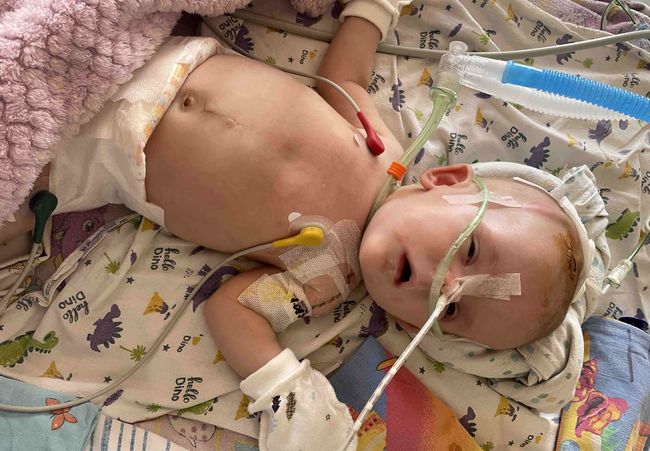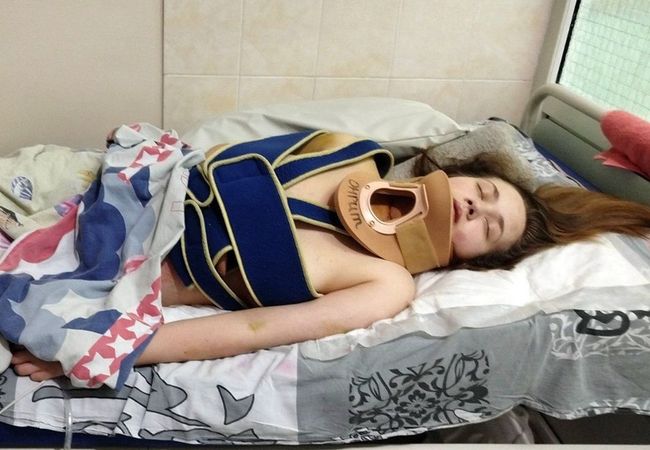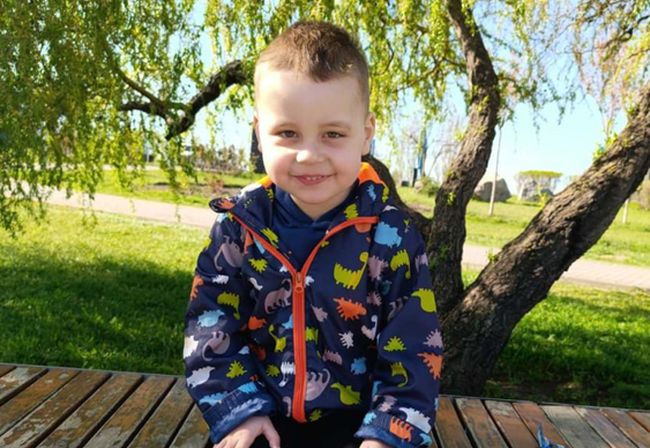At times stories featured in our programmes about adoptive families resemble a fairy-tale. Do not get us wrong- the stories are true, only where there is a happy ending in a fairytale, it is usually just a beginning in the characters' real life.
What happens to a little person when s/he is no longer in the institution but at home with an adoptive family? Why suddenly a child's behaviour becomes unpredictable? Is the adaptation period inevitable? If so, what mistakes adults tend to make at this turbulent time?
Today we begin to find answers to some of these questions…
"A difficult question"
We are grateful to all adoptive mothers for their willingness to share their stories. We understand that some of the issues raised are sensitive and difficult to talk about.
Often adults are happy to tell us how they found a child. With pleasure they recall first days they spend together. However, they rarely mention that following these warm feelings of love and affection, other feelings, not as pleasant, may also arise. Sometimes it is difficult to admit, even to yourself, that you have them.
" I think I fall in love with her the first time I laid my eyes on her"- says Nina, adoptive mother to a 3-year old Yana. But this love was slightly different to the love of a biological mother. She was a stranger to me… I liked her a lot but she was a stranger"
Nina understood that in order to love her baby as if she gave birth to her, time had to pass.
Nina: "I read about the "theory of adaptation". I knew what could happen. But naturally I thought it would not happen to us.
Although I adore my baby girl, we certainly encountered some difficulties in developing our relationship.
We had a " honeymoon evening"- her arrival day. Everything was great, but the following day the adaptation period suddenly began.
The next day, when I was at work, I received a telephone call from home saying that the baby is crawling on the floor, biting everyone's legs. No words, pleadings, begging or even yelling could eradicate the situation.
Amongst other things, she was making a huge mess, was jumping up and down the upholstery and even had time to hang from the curtains - just like a little Tarzan.
I never expected something like this could happen. Consequently I was very depressed. When we visited our future daughter in the orphanage, I could see that she was very energetic, but I never expected this type of distractive behaviour from her. I have two of my own children. At the time, my youngest daughter, who was just one and a half years old, would constantly hide from Yana or watched with terror how her new sister was destroying the apartment.
One and half month of nightmare. I had no idea what to do. I had no alone time. Sometimes I would lock myself in the bathroom and put my hands over the ears- I could not stand it anymore. Yana was constantly yelling something, I could not comprehend what it was- but it was terrifying.
It was very challenging. My husband is an introvert. I could see how difficult it was for him, so I blamed myself. It was my idea to adopt. I love my husband, but I did not want to see him suffering. Thus I decided that if all of this was too much for him, I would let him go.
We talked and I feel ashamed now for doubting him because he is the one who supports me the most. At the time he looked into my eyes and said: " How could you even think that?!" I love our daughter. Yes, it is challenging now, but it will not be for long. Everything will be all right!"
"It is very important to realise WHAT awaits you"- Nina insists.
Nina understood that her baby girl was never part of a real family before therefore could not know or understand how to behave in such an environment.
Thanks to her new parents Yana knows what it means to be loved.
" When I come back home from work, my daughter is constantly with me, she climbs on my knees and follows me wherever I go. At times it worries me, but I understand that she has been in deficit of love and affection, hence the " clinginess".
I embrace her as much as I can because she may not want this much affection tomorrow. But I want her to know that mummy is always near.
At first I was terrified when I saw her eat. She ate with a meteor speed, as if somebody would take the meal away. Now she eats normally because she understands that there will always be food when she is hungry.
Finally, she learned to play on her own. When she first arrived, however, it was not possible. After two minutes of play she would give a toy up and run back to me in order to be reassured that I am here and not going to leave her.
At first she acted surprised and bewildered when I praised her. She did not understand what I meant. In turn, she did know how to feel sorry for other people. For example, if she pushed or stepped on someone's foot she could not comprehend that a person was in pain. We had to teach her how to say sorry.
Little by little she is becoming a lovely little girl, but there are still reminders of her past life- for example she does not understand that certain things do not belong to her. She does not understand why she cannot take a toy from the nursery, she truly believes it belongs to everyone, hence openly claims her right to it.
I never thought of giving her up. Never, no matter how difficult things were, how depressed I was. With all my heart I believed that there is a light at the end of the tunnel.
She is our daughter and we love her with all of our hearts. It does not matter how difficult she can be at times, we never differentiate her from our own children. When doctors ask me how many times I gave birth I always say three, but then on a way home remember that it was actually two…
Olga is a successful young woman and a happy mother of two daughters.
In August last year she saw a programme about abandoned children. From that moment on she realised that she can never live her life as before. Consequently, in September, Olga adopted three-year-old Igor- a bright little boy from the Orleansk Orphanage House.
Olga: "a day after his arrival Igor started running around the apartment and like a hurricane diminish everything on his way. He would turn the lights on and off, break toys and laugh in a demonic voice. I felt as if I was in a horror movie. Telling him that what he was doing was wrong did not give any positive effects. He would look at us with glassy eyes and simply laugh.
We had another child who was only seven months old at the time. Igor would knock her down constantly and she even hit her head a couple of times- as a mother I could not continue to let it happen.
I am very annoyed by the thought that I could not control myself. Couple times I grabbed and shook Igor until he calmed down. I understand that what I was doing was wrong, but I could not help it- I had a nervous breakdown. I was not ready for this situation.
One day my husband witnessed my hysteric episode. I was lying on our bad in peaces. There was only one thought in my head" What did I do?" I felt as if I ruined everyone's life. I cried non-stop. My husband then decided to take the situation under his control. He proposed a different technique of improving Igor's behaviour. We decided to give him a taste of his own medicine. It was clear by then that if we could not discipline him, he would never respect us.
I wanted to stop time. I wanted to be happy again.
Yes, thoughts like these crossed my mind. We are fairly patient people and we realised that the child was simply reacting to the new environment. But I do not know how much more I would be able to take until I would decide to return Igor back to the orphanage.
His distractive behaviour could have lasted for a long time. In our case it was approximately a week. Thereafter his behaviour was becoming more and more rational. Now everything is normal. Today he is a completely different boy.
My husband does not feel different towards him as he does towards our own children.
I would never give Igor away. But there are moments when I remember that I did not give birth to him and this makes me irritated.
Nevertheless, everyday I work hard to improve our relationship.
I think it is very important to remember who this child is and what he had to go through. I feel sorry for him. I do not think that feeling sorry is a bad thing. I believe it can develop into love. Where else would love come from? I do not know, maybe some people are able to love another child just by looking at him. But I had a different motivation, I just wanted to help, to do something for at least one of many unfortunate children like Igor.
Undoubtedly I have to work on improving myself, but I will go through fire for Igor."
A year ago, Tatiana and her husband decided to invite an orphan to spend a weekend with them. When nine-years old Maxim spent a summer holiday, Tatiana and her husband decided to adopt him.
"For two months everything was fine. Then everything changed. I started to get annoyed when he would upset my children. His behaviour scared me, made me hysterical. "How could he upset my lovely children?" I thought. In my eyes he was a little devil. "How could I not notice it before?" "What was I thinking when I was signing the adoption papers?" These kinds of thoughts would very often cross my mind.
In the moments of clarity I could understand that it was not Max's behaviour as such which was upsetting me, but the fact that a stranger was now living in my house.
The constant annoyance reflected in my behaviour towards the whole family, not only Maxim. Yes, it was a difficult for all of us…
On the one hand, I thought my children were angels in comparison to Max's behaviour, but on the other, I would think: " I can't stand it! There are so many of you!" I felt a constant pressure.
My husband was very supportive. Everyday he would reassure me that everything would be better. He always said that Max was normal as well as the situation. It was helpful to realise that what was happening to us was inevitable. I knew we were not the only ones in these circumstances. Many have gone through it…"
To give a child back to the Orphanage never crossed Tatiana's mind. But she had a secret dream…
" I never shared this with anyone, but at some point I dreamed that Max's birth mother would come back to claim him. I would not protest.
Now I am terrified of this thought. What would my children say? " Would you also give us away if we behaved badly?"
I looked back at the time when he first came to visit us. How could we invite a stranger to our house? Now I consider him ours. It is a slow process, however, and it has only commenced recently…
Without a doubt there are some difficulties awaiting in the future, but Tatiana is much more confident to face them now.
"Love may come, but it may not. But we have to understand each other. We have to learn how to live with what we have. At first I thought that Max was using us. He did not care about our family's feelings-hence the behaviour. But I know for a fact that he absolutely adores a friend of mine, still, sometimes he acts hostile towards him.
Now we understand that this is his style of communication. He does not want to hurt us.
It is difficult to love somebody who, even if loves you back, does not show it because he does not know how. Orphans have to learn how to be affectionate. Due to the life they live in the institution they have learned (too well) how to hide their feelings"
Adults and children have their own, individual paths towards each other. There is no formula of a successful relationship. We hope, nonetheless, that the story of Tatiana and others will help somebody who is going through similar motions.
"Another advice to those who find themselves in an adaptation period: stop all communication with people who have not supported your decision to adopt. At least until it becomes less difficult, until you feel that an adoptive child is truly your own. But until such moment comes, you have to accept what you have.
There may be times when you would want to close your eyes and find yourself in the past, in your old, comfortable life where there was only you and your husband and your own children. I had moments like this: I would look through old photos and cry melancholically for the times that could never return. Do not allow yourself to do that! Even if you give the child back your life would never be the same.
Learn how to live together with your child. Because he is your child forever"
So why does the child's behaviour changes so rapidly? What is happening to him/her? Can the infamous " adaptation period" be avoided?
"Children's Advocate"
" Adaptation always takes place. But there are ways to escape certain difficulties"- insists Galina Krasnitskaya (PhD in children's psychology)
Galina Krasnitskaya: " Children do not behave this way incidentally. When a child is brought home, s/he does not have familiar boundaries - they disappear. Instead, s/he must learn the new ones, but a child does not know what they are. Therefore s/he tests the new surroundings to see how far s/he can " push" it. This is normal. Within this period a child usually shows extreme tendencies of his/her character. Some get very quiet or overly active. Other children can become hyperactive, even aggressive. The latter mostly occurs when a child associates this kind of behaviour with " freedom" "
It turns out that the length of the adaptation period as well as a child's behaviour depends on a number of factors.
" Amongst other things it depends on age and maturity of a child. Small children are more likely to behave aggressively, but in their case it quickly passes. First stage of the adaptation is called a " honeymoon". Small children have it for about an hour. Older children's " honeymoon" may last for up to a week, or even longer. I know a child whose " honeymoon" lasted a year.
It depends on the behaviour characteristics of every child. Somebody adopts quickly, whilst others will need more time.
A lot depends on the parent's own behaviour- how they will react to the circumstances. Whether they will do anything in their power to help the child or yell " get him out of here!"
Do not expect to be instantly loved or for a child to be grateful. You must be patient. Patience is the most important quality for an adoptive parent. Otherwise parents get annoyed easily which is not acceptable in this situation. You must be able to control your emotions.
One more thing, ask yourself: " Why did I take this child?" If you had an ulterior motive, e.g. to stop your spouse from leaving, this is unlikely to help. On the other hand, if you adopt a child despite your expectation of some difficulties and your are eager to put your heart and soul into helping a child, it will become less strenuous.
If adults are aware that difficulties are unavoidable, it will become easier to overcome them. Indeed, there is always a mix of emotions, but this is inevitable. Remember: adaptation period passes. It is temporary and normal. It must take place…



